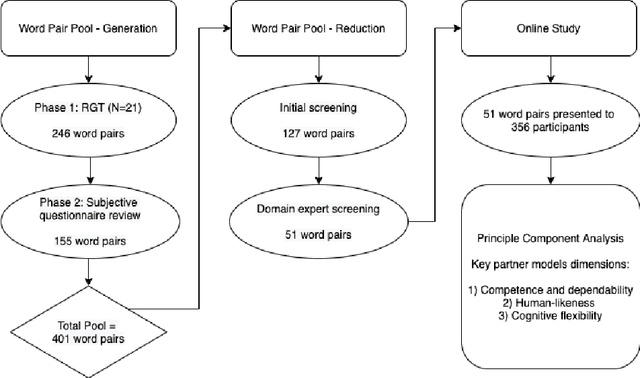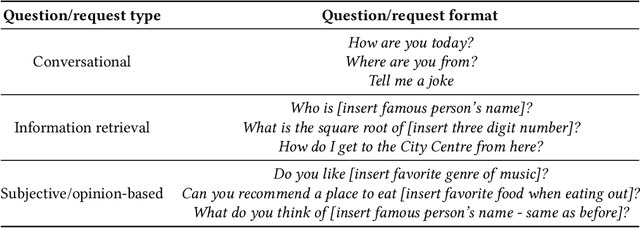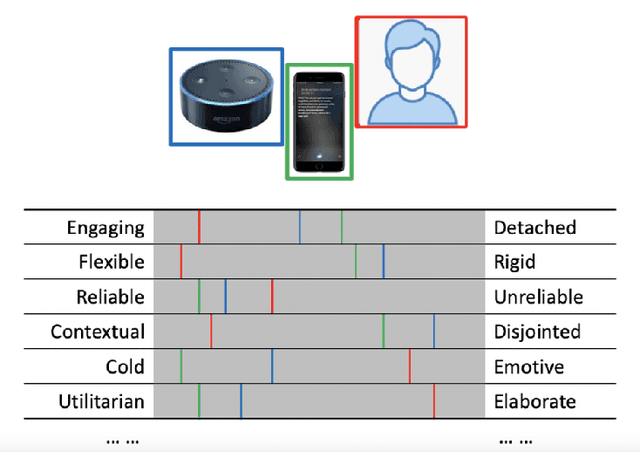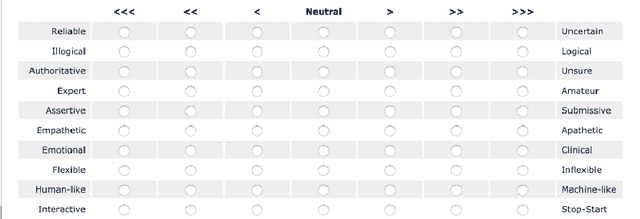Benjamin R Cowan
What Do We See in Them? Identifying Dimensions of Partner Models for Speech Interfaces Using a Psycholexical Approach
Feb 03, 2021



Abstract:Perceptions of system competence and communicative ability, termed partner models, play a significant role in speech interface interaction. Yet we do not know what the core dimensions of this concept are. Taking a psycholexical approach, our paper is the first to identify the key dimensions that define partner models in speech agent interaction. Through a repertory grid study (N=21), a review of key subjective questionnaires, an expert review of resulting word pairs and an online study of 356 user of speech interfaces, we identify three key dimensions that make up a users' partner model: 1) perceptions toward competence and capability; 2) assessment of human-likeness; and 3) a system's perceived cognitive flexibility. We discuss the implications for partner modelling as a concept, emphasising the importance of salience and the dynamic nature of these perceptions.
 Add to Chrome
Add to Chrome Add to Firefox
Add to Firefox Add to Edge
Add to Edge